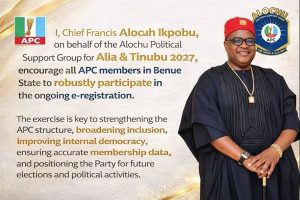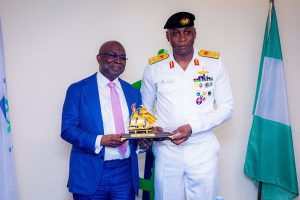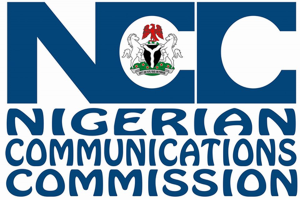…How they fared in the president’s “change” mantra
President Buhari’s eight-year rule in Nigeria is ticking to a round off this May, having registered
an unforgettable era in the affairs of the nation. The man who has held forth at Aso Rock since
May 2015 can look back over the eight years of his reign with a sense of a great ambition
accomplished.

It was for him a dogged desire persistently pursued until time and chance made way for him
after contesting for the office of the president for the fourth time running.
Quite often, persistence is driven by a mission to change an undesirable state of things and
those who persist do get the chance the moment society stands up for a change. And so it was
for Buhari, who is a proof that subject to free and fair election, a government that disappoints

the people is on its way out of power.
He took over government at a time that it has become quite difficult to be sure who to trust
amid rampant corruption in high and low places. Yet, to stem corruption was one of the main
elements of the change agenda for which the nation looked up to him.
And that was the conundrum for the man who had in his hand a state of the economy that
needed an emergency ward treatment – the absence of somebody to trust. For if the new
government is again laden with corrupt officials; the end shall be worse than the beginning.
Being quite aware that new hopes had downed for Nigeria with his return to the government
house, he took a lot of caution in search of men and women of integrity to build a new legacy
for the nation.
Notwithstanding an initial delay, his effort paid off in putting together a team of men and
women who somewhat had something new to offer. With some pruning, reinforcements and
replacements here and there, the Buhari’s administration established legacy drivers that
constitute the anchor of his mission of change.
The centreport of Buhari’s legacies to the nation is in respect of the mission to recover stolen
funds whereby he waged a full-scale battle against treasury looters. This is in the process of
changing the flow of money from the private pockets of treasury looters back into the public
purse in order to build Nigeria again.
More than any other government before him, Buhari turned on a searchlight on Nigeria’s stolen
wealth that revealed unimaginable ways people have diverted the nation’s wealth away from
public service into cracks and crevices of selfishness.
The battle line extended to the three arms of government – the executive, the legislature and
the judiciary. Budget padding practices by lawmakers were exposed for the first time and in the
judiciary, judges – high and low, were made to face the same law they administer to others.
There has never been a better proof of the slogan that ‘nobody is above the law’ than the
Buhari’s anti-corruption crusade. Despite some clogs in the wheel of progress, the nation has
recovered good money it lost to corruption through the anti- corruption programme of the
Buhari-led government.
Resource recovery battle has been carried to the door steps of key public institutions in an
attempt to seal the drain pipes of revenue losses and enlarge the revenue flow channels to the
public purse, which has afforded some respite to the economy.
The growth of any economy in a monetized world depends on how much money gets into the
system. In order therefore to step up economic growth, finance development projects that can
stimulate economic activities and deliver new jobs, Buhari needed a lot of new money into the
public system.
All the economic hardship and poverty that affect the masses hinge on the absence of adequate
funding capacity for robust stimulatory spending. Had the government pumped in new money
big enough into the economy, the economic recession of 2016 would have been averted.
The economy could not be empowered through the fiscal space to higher levels of production
and consumption, income and employment. Yet, it was largely a man-made problem – public
resources disappeared into cracks and crevices of private pockets, robbing the system of its
internal capacity.
The situation clearly underscores Buhari’s vexation against the nation’s treasury looters, which
is a key element of his mission in government. He has hit the nail on the head that Nigeria’s
underdevelopment and backwardness are rooted in corruption in high places.
No matter the level of success he has attained in this wise, he has shown the light for direction,
pointing the way forward for the nation. The full realisation of this legacy cannot happen during
his term but he has begun the journey that needs to be sustained and reinforced for the nation
to ever find adequate capacity for development.
Buhari takes the credit for setting the pace and leading the way to recover and redirect the
nation’s resources into activities that build economic capacity. He is leaving behind a record of
being the only Nigerian President in memory that has stepped on big toes, flogged sacred cows
and ransacked no-go areas in the course of recovering national resources from looters.
All the activities and measures he has pursued to get money back into the public system point
to the nation the right way to go from where he is about to stop. The level of success he
attained isn’t ranked as much in importance as having defined the direction and setting the
pace forward.
The signal is clear that no government in Nigeria will be able to make any positive impact on the
lives of the people unless it is able to redirect much of public funds back into the system for
development.
Consequently, making some headway in moving the nation forward has to necessarily involve a
grand confrontation with treasury looters. The alternative is borrowing, which without sanity in
the government house, equally fails to achieve development targets. Without further headway
in tackling losses of public funds to corruption, the incoming government could borrow a lot
more money than the Buhari’s government.
Whatever level of success that Buhari has attained in this direction, it provides a stepping stone
for the next government to improve, innovate and advance the pace of economic development.
The top 10 legacy drivers of the Buhari era are made up of people that have played key roles in
recourse mobilization, utilisation and new capacity building in the economy. Among them are
personalities that have turned traditionally corrupt agencies of government into dependable
cash cows, hitting new revenue targets from year to year.
Some are in the forefront of the fierce battle against treasury looters with the biggest
recoveries of the nation’s stolen wealth ever made to show for their effort. There are fierce
fighters on the offensive also on the other side of illicit drug crisis in the country with historic
victories. Yet some of the Buhari’s men are manning the strategic corners of economic
diversification by opening up vast non-oil resources.
Some of them have made remarkable progress in utilising available funds effectively to deliver
major infrastructure projects that could have been abandoned without the reduced level of
corruption in government.
Yet others have excelled in the application of technology to enhance economic capacity,
creating new opportunities for people and businesses across sectors and industries.
Col. Hameed Ali: Comptroller-General, Nigeria Customs Service (NCS)
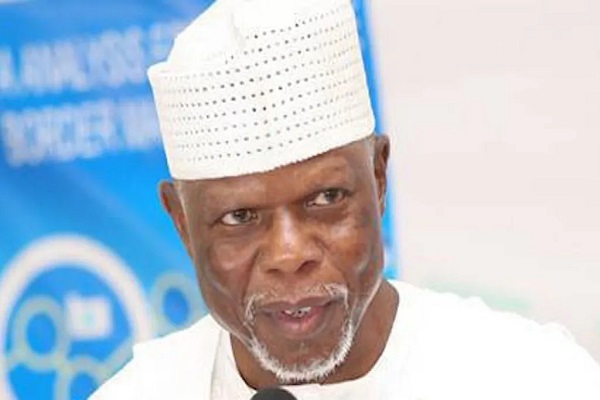
Col. Hameed Ali (Rtd.), Comptroller-General, Nigeria Customs Service (NCS), is one of the most
trusted legacy drivers of the Buhari’s government. The criminologist is on the side of anti-
corruption crusaders of the administration given charge of an agency traditionally known to be
a drain pipe of government revenue.
From one administration to the other through the years, NCS has worn a symbol of corruption
and inefficiency but Buhari took the most impactful steps to change the label. It was for him
imperative that a new and undefiled spirit got on the saddle in the leadership of the service.
The President was keen to ensure that he has in such a sensitive position someone he can trust.
Curiously finding no career customs official suitable for the much needed reform, the President
found in Ali a man of vaunted integrity quite fitted to carry out a swift surgical operation at
Customs.
His trust and confidence on the retired colonel are rooted on tested character and established
integrity. Ali was the President’s campaign funds manager and later on his chief of staff.
Ali built an outstanding reputation of trust and during the military era when he held a number
of critical positions and retired from the service without any character stain or spot of
corruption. Since then he has maintained a lifestyle of contentment with what he has.
His mandate at the Customs was to close up channels of revenue leakages and empower
government with the fiscal space needed for stimulatory intervention in the economy.
By a wide agreement, Ali is well fitted for the job, being widely reputed as a Spartan anti-
corruption crusader. He understood his mission at the Customs quite clearly, which is to take
the President’s anti-corruption crusade to the Nigerian Customs Service and to report victory.
In his own words, his mandate is “go to Customs, reform Customs, restructure Customs and
increase the revenue generation, simple”.
The coming of Ali has witnessed the beaming of the most probing searchlight ever on the
Nigeria Customs Service. Soon after his appointment, he embarked upon a number of
restructuring measures aimed at enlarging the revenue generating capacity of the agency and
strengthening the operating framework of the service itself. When he arrived at his duty post,
he quickly showed the officers of NCS the two sides of his operational coin.
On the one side was a hand of cooperation, which he extended to the Customs management to
work with him to deliver on a mandate totally different from what they used to know. He left
no doubt that he was on a worthy mission to provide effective leadership to the organisation.
The other side of the coin was a bombshell: corrupt customs officers will be dismissed,
prosecuted and sent to jail under the new regime of zero tolerance for corruption. It was a
strategy of administrative divide to preserve and strengthen the good workforce in the agency
and show the bad the exit door.
Ali carried out restructuring operations at the Customs involving an overhaul of the
management team. In the process, some members of the team were retired and new members
were appointed into the team. This was followed by a major redeployment exercise, which was
aimed at strengthening operations at all critical quarters of the service.
The new Customs boss introduced stringent operational procedures, which require the filing of
weekly reports to his office on all proven cases of false declarations, deliberate misapplication
of tariff, undervaluation, concealment and seizures with full compliments of action taken.
In order to achieve smooth and efficient operations in across the board, he dentralised
functional authority, giving increased operational powers to customs area controllers, heads of
units and departments. He matched the enhanced authority with increased responsibility,
making the heads accountable for infractions in their areas of operations.
Ali is clearly in the forefront of the legacy drivers of the Buhari era, having delivered
satisfactorily on his mandate. He has provided a significantly enhanced leadership quality at the
Nigeria Customs Service.
The outcome is a changed operating environment for enhanced revenue generation, having
injected in the organisation a new spirit of loyalty and dedication to the course of nation
building. NCS stands as a living testimony that the government’s change agenda did happen at
least in some quarters.
An important part of the reform involves staff welfare improvements, which was to ensure that
staff and officers of the department do not need to be corrupt in order to live well. Ali has used
adequate motivation of the workforce as a tool to preserve good staff and as the key for
optimising service delivery and revenue generation.
He also took steps to address a number of anomalies in staff matters affecting recruitment,
training, posting and promotion of officers. He also enhanced human resource capacity through
training and re-training of officers and men of the service for effective application of the
Customs and Excise Management Act.
Ali has taken NCS through a fire of reform and produced a transformed agency with corruption
minimised and revenue delivery enhanced. Through the economic declines and slow growth
seen over the eight years of the Buhari’s administration, the Customs Service has continued to
attain new peaks in revenue generation numbers.
The positive narration of the Customs presents a major counter cyclical force that has helped
the government to stem the force of economic decline and propel the recovery functions of the
economy.
Abdul Rasheed Bawa: Executive Chairman, Economic and Financial Crimes Commission (EFCC)
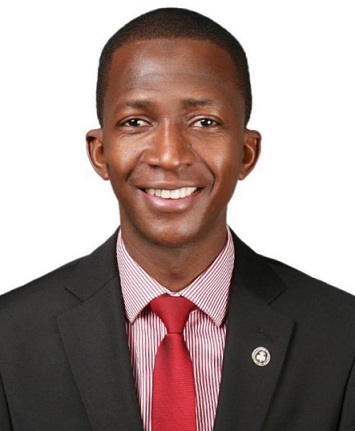
Abdulrasheed Bawa is the fourth executive chairman of the Economic and Financial Crimes
Commission (EFCC), who was called for duty when trust and confidence on who leads the
nation’s anti-graft agency were called into question. Anti-corruption is a key element of
President Buhari’s legacy and it mattered that it is neither allowed to waiver nor frustrated by
leadership failure.
A time came in early 2021 when the commission needed a new zeal in leadership to recharge
its mandate and deliver on targets of convictions of suspects and recoveries and Bawa is the
man for whom the President defied the normal appointment procedure to place him in charge.
Against the prevailing order where either serving or retired police personnel were appointed to
head the institution, Bawa is the first regular EFCC official to be so appointed.
The President’s trust on the extensively trained and experienced detective of 17 years standing
apparently hinged on his vast investigative experience, covering the entire waterfront of
prosecution of advance fee fraud, official corruption, bank fraud, money laundering and other
economic and financial crimes related offences.
In just two years on the saddle at the EFCC, the records are affirming that the he is the right and
proper hand needed on deck to drive Buhari’s legacy from the core angle of the anti-corruption
battle. He has fired up the operating force of the agency through reforms and innovation driven
by courage, commitment and integrity in operations.
He has put in place a firmer architecture of the anti-graft war – which is yielding the much
desired fruits in terms of the number of convictions and funds and asset recoveries. Trustees of
power, the sacred cows and the untouchables are coming under fire under the renewed onslaught of
the grand commander of the anti-graft agency.
The convictions that the EFCC secured in 2022 alone are more than the convictions the
commission has recorded from inception, according to its records – a signal of really waking up
to the call of duty.
Speaking in 2022, Bawa said, “last year (2021), which was part of my administration, we
recorded an unprecedented 2,220 convictions and this year, even though it has not ended, we
have so far recorded 3,615 convictions — unprecedented”.
The numbers are in sharp contrast with the commission’s performance in the preceding six
years from 2015 to 2020. Over the six years, the EFCC recorded 195 convictions in 2016, 186 in
2017 and 312 convictions in 2018, according to Bawa. He added that in 2019, the commission
had its best record over the six-year period with 1,280 convictions, which went down to 976 in
2020 – the year before his appointment.
To have got in less than two years close to twice the number of convictions recorded in the
preceding six years speaks loudly of a new zeal of action and strategy at EFCC that is
outmatching those of fraudsters. It testifies of a major change in the game plan from the dreary
approach of a laggard to a craftsman’s attention to details and of diligent cracking of hard nuts
of various types of suspects in trial.
Bawa’s high records of convictions in two years of his leadership of the commission are a
testimony of many years of experience in successful financial crimes investigation, arrest and
prosecution that he has brought into the 20-year old agency.
With increased convictions has also come increased recovery of stolen funds and public assets –
a development which is central to the legacy of the Buhari’s administration. Highlighting the
achievements of the anti-graft agency, Bawa disclosed the recovery of over $121 million
between January and October 2022, which is part of the assets that have been forfeited to the
federal government.
The figure is in addition to monetary recoveries of over N134 billion and various foreign
currencies as well as various non-cash assets such as automobiles, electronics and real estates –
which have been forfeited to the federal government over the same period.
The break-out success of EFCC in just two years of Bawa’s leadership is traced to fundamental
changes in its operational framework. The commission’s operations have been given a new
momentum by digitalizing and institutionalising its processes and procedures – which came on
stream under Bawa’s leadership. The operational leap has placed the commission equal in
operational dynamics ranking among law enforcement agencies in the world.
For the first time, the commission is seen to have transformed into an institution and has done
so in just two years. In place of a large room for discretion that is subject to a lot of influence, it
now has in place a standard operating procedure directing the entire processes and
procedures.
The result is the elimination of arbitrariness that used to clog the wheel of progress and the
ushering in of a process-driven system framework that leaves no room for slumbering all the
way from crimes reporting, investigation to trial of suspects.
Part of the operational dynamism is the launching of an application in July last year, which was
designed to ease the process of reporting economic and financial crimes in the country.
According to Bawa, the app, known as Eagle Eye, has complemented existing channels of
reporting crimes. It offers simplified features of friendly application and easy navigation by any
literate person.
A number of other capacity building initiatives have also been undertaken within the short
space of two years. These include capital projects designed to upgrade the commission's
training capacity, zonal offices and empowering of new departments such as intelligence
department and tactical operating centre.
Accountability and transparency of the commission’s operations is part of the new down at
EFCC. A nationwide disposal of assets seized from corrupt Nigerians was held publicly last year.
The various items were auctioned to the public, giving back to Nigerians what the nation lost to
corruption.
Dr. Muhammed Nami: Executive Chairman, Federal Inland Revenue Service [FIRS]
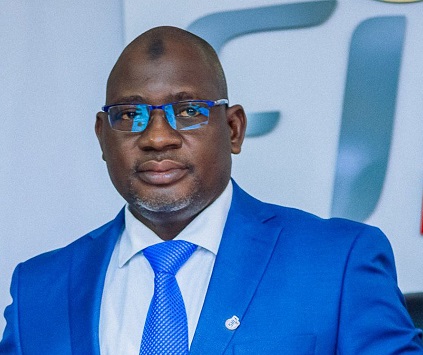
Dr. Muhammed Nami, executive chairman, Federal Inland Revenue Service [FIRS], was called in
to take over the job of building tax revenue, which became critical in the face of disappointing
oil earnings. A significant increase in tax revenue was needed to reduce widening fiscal gap as
oil prices faltered and debt servicing requirements expanded.
Dependence on increased non-oil earnings, led by tax revenue therefore became imperative to
provide the fiscal space. The expectations however weren’t being met and the initial reading of
five years of missed tax revenue targets needed to change.
Nami is the man for the change in the tax revenue narration and his task is to drive a new
regime in tax administration where government can depend on tax revenue to close the fiscal
gap.
The need was pressing to generate funds needed for fiscal injection in public services and
infrastructures for the government to deliver on promises. The various tiers and arms of
government and by extension the well-being of all Nigerians involve enormous funding
requirements.
Nami understood that the responsibility placed on his shoulders is critical to the smooth
operations of the entire organs of government and he was poised to meet the challenge. The
versatile tax administrative specialist assured the nation that “we cannot therefore afford to fail
in this regard”.
Besides understanding the intensity of the job, he has robust professional credentials cutting
across the entire waterfront of knowledge and experience needed to deliver on mandate.
He has implemented a grand policy reform and institutional re-organisation at FIRS and rolled
out agenda of tax-driven solutions to Nigeria’s earnings volatility. The agenda are driven by
application of technological innovations in the tax administrative machinery.
The changes align with the global trend where deployment of appropriate technology has
become an effective means of enhancing tax revenue.
Nami set tough goals for himself at FIRS – which is to take Nigeria’s tax-to-GDP ratio from 6
percent to the World Bank-recommended threshold of 15 percent. The target, he said, needs to
be attained in order to avail government the benchmark for realising its economic growth and
poverty reduction agenda.
Nami also set out on a mission to slash Nigeria’s VAT gap from as high as 70 percent – one of
the highest even by African standard.
His strategy for attaining the goals is to transform the length and breadth of tax administration
and compliance landscape in Nigeria. He brought into play the full cardinals of professional
practice he is made of to lead the way on how a model tax administrative system should run.
He constructed four cardinal pillars around which the programmes to reposition the service for
enhanced performance are anchored. The four-point agenda are rebuilding FIRS’ institutional
framework, robust collaboration with stakeholders, building a customer-centric institution and
making FIRS a data-centric institution.
Plugging loopholes of tax evasion exploited by individuals and businesses is an area he
identified as critical to the success of his mission at FIRS. He found a solution in the application
of technology through the deployment of technology-based intelligence-gathering and
information-sharing.
Nami also deployed technology in tax collection through innovative links to business premises
using a central server. The innovative steps have paid off by enlarging tax revenue capacity as
well as hitting new revenue targets.
By getting all transactions that bear on taxes payable captured directly in line with the globally
accepted standard, FIRS’ tax revenue capacity has expanded.
Nami set out on a task, which is to have everyone, who wants to benefit from the nation’s
commonwealth, become contributors to the wealth of the nation. He has led a major campaign
aimed at turning tax evaders into national wealth builders.
His approach is to give a human face to tax administration. This involves a series of palliative
measures designed to cushion the burden of tax compliance on taxpayers.
Nami’s regime at FIRS has attained some milestones in reshaping the nation’s revenue structure
to prevent volatility in crude oil earnings from undermining budget performance and
implementation of development projects.
He has attained a major milestone with his grand design to reposition stamp duty as the next
major revenue growth driver for Nigeria. This constitutes a key element of tax revenue capacity
building strategy under Nami’s tenor at FIRS.
Nami has ushered in a new momentum in Nigeria’s tax administration, having progressively
moved FIRS towards delivering the much desired fiscal space for which the President called him
to duty.
Babatunde Fashola: Minister of Works and Housing
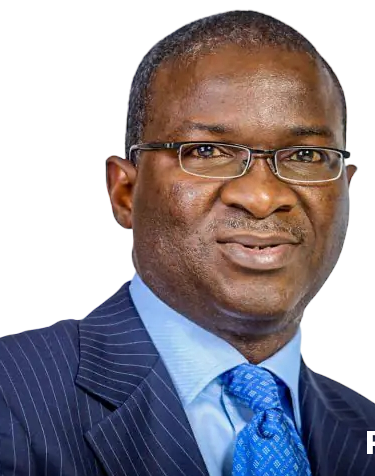
Mr. Babatunde Fashola, minister of Works and Housing, made it to President Buhari’s cabinet in
recognition of his ability to show meaningful infrastructure development with resources at his
disposal. He ranks high on the President’s list of trusted personalities in his government, placed
on a strategic ministry where he is to optimise the use of available resources to deliver the
highest possible stocks of public infrastructures.
Prudence and efficiency are two key ingredients in his mandate as virtually all the funds coming
to his ministry for capital projects have to be borrowed in the face of revenue constraints. Every
kobo needs to count particularly in a situation of massive infrastructure gap the nation has
been facing.
Development of public infrastructures has lagged behind rapid growths in population and
businesses in Nigeria for a long time. The duty call to make up for the deficit fell on Fashola,
who was charged with the task of making infrastructural transformation happen in Nigeria
under the Buhari-led administration.
The government’s infrastructure development strategy is to enhance the ease of doing business
in Nigeria. The realization of an exciting business space is expected to spark off economic
growth through investment inflow.
“Fashola has pursued the mandate with a lot of passion in his conviction that Nigeria ranks
among the tops globally in terms of return on investment. According to him, the country’s key
advantage is its very active demand power, which is irresistible to serious investors anywhere in
the world.
His part in the Buhari legacy is therefore to bring about an infrastructure transformation good
enough to spur a new level of investment inflow, creating new jobs, enhancing economic
growth and advance the well-being of the people. A regime of elevated inflow of new
investments held the high hopes of achieving exchange rate stability.
The 8-year minister of works has implemented a grand infrastructure development package in
what he framed “a decade of infrastructure renewal and expansion”. He unveiled a raft of
ambitious projects, some of which are in the multi-billion dollar region to make this happen.
The infrastructure commitments of the government cover more than 10,000 km of road
network, refurbishing of bridges and public infrastructure highways. The records show both a
large number of infrastructure projects embarked upon and the inclusion of giant sized
development works under the Buhari’s government.
The ability to accommodate these projects in the face of fiscal challenges rested on new
borrowing as well as innovation. Fashola has combined borrowing for economic capacity
building with private sector funding initiatives.
He introduced Highway Development Management Initiative under which a number of
highways are concessioned to attract private investments. This enables strategic private sector
interventions through advance tax credits.
Under the initiative, companies and institutional investors are given the opportunity to identify
the infrastructure works of their choice and agree the terms of execution with the ministry of
works. They can make the investment by advancing their tax to government ahead of time.
Community targeted infrastructure development is also part of the government’s strategy in
order to impact people and businesses directly. The idea is to make beneficiary community
involvement in projects the norm in the country.
Tertiary institutions belong to this category where the ministry undertook the construction of
internal road networks in 43 federal tertiary institutions.
The campus infrastructure projects were executed simultaneously across the geographical
spread of the institutions, which has provided uniform standards for educational developments
across the nation.
Project execution was structured to empower students and impact their lives personally.
Students of the institutions, especially those in engineering/vocational related courses were
engaged on the works.
The targeted beneficial impacts were realised – the students gained practical knowledge along
the value chain of project execution and received payment for involvement on the works. This
is in line with the job creation and poverty alleviation programmes of the government.
The ministry’s national housing project followed the same pattern in creating engagement
opportunities for community members. The projects execution have provided opportunities for
both skilled and unskilled workers to be involved and make their contributions in stimulating
economic activities that impact the communities positively.
Prof. Umar Garba Danbatta: Executive Vice Chairman, NCC
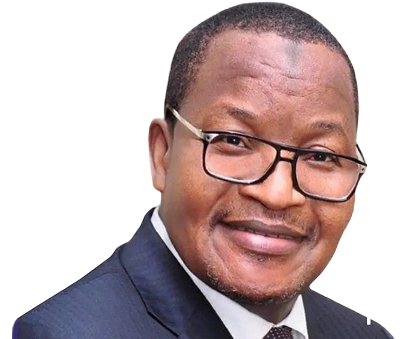
Prof. Umar Garba Danbatta, executive vice chairman, Nigerian Communications Commission
[NCC], has manned a strategic industry with one of the greatest potentials for growth and
investment inflow over the eight years of President Muhammadu Buhari’s administration.
Over the eight years that he has been in charge at NCC, it has been the white flag up for him on
effectively using telecomm to drive economic growth and foreign investment inflow.
Telecommunications has remained the growth driver of the ICT industry with its contribution to
GDP advancing from 8.5 percent in 2015 to 15 percent in 2022.
Under his stewardship also, foreign investment inflow into the Nigeria’s telecommunications
industry has more than doubled from $38 billion in 2015 when he assumed office to over $70
billion in 2022.
Furthermore, NCC conducted the auction of 3.5Ghz spectrum to deploy 5G network in
December 2021 from which it raked in over $500 million into the federation account. Between
2015 and early 2020, the Commission remitted roughly N345 billion to the government’s
consolidated revenue fund from spectrum fees and operating surplus.
The commission also embarked on spectrum auctions, re-planning, re-farming to optimise the
usage of available resources, as facilitated by its strategic vision plan 2015-2020.
With the inflow of investments, telecommunications has built a strong capacity to support the
economy, providing the necessary digital impetus to economic diversification effort of the
government. Being a top team player of the President team since his first term in office,
Danbatta’s accomplishments at NCC have provided strong technology backing to government in
changing the course of the economy from oil and gas dependence.
The unprecedented growth recorded in the telecoms sector has exerted a multiplier effect on
other sectors of the economy. Liberalisation of the sector has ushered in different players
leveraging different technologies to offer services. This has opened the channels of e-
commerce, e-banking, e-agriculture, e-healthy, e-transportation, e-education and more.
Consistent growth in telecomm has enabled Nigeria to achieve overall economic growth while
oil GDP has been declining. The commission played the role of positioning telecoms as baseline
enabler for the realisation of the Economic Recovery and Growth Plan 2017-2020 of the
government.
NCC under Danbatta has succeeded in deepening access to telecommunications services – voice
and data in Nigeria through major initiatives, programmes and effective regulatory
interventions. The commission’s efforts exerted stimulatory impacts on key economic sectors
such as healthcare, education, agriculture, finance, transportation, commerce, governance,
among others.
The provision of increased digital access to all economic operators in private and public sectors
has created an information rich society and empowered individuals, businesses and
governments to act on emerging opportunities. This is evidenced by the massive growth in the
telecoms sector that Danbatta’s leadership has recorded over the eight years he has held forth
at NCC.
These years have witnessed an unprecedented growth in telecomm subscribers’ base with the
number of active mobile voice subscribers rising reaching 208 million. A new milestone in
Nigeria’s teledensity was attained in 2022 at 109.5 percent, increasing from the previous record
of 99.2 percent.
Basic internet subscribers have jumped from about 128 million to 152 million under Danbatta’s
watch while broadband subscriptions stood at 85 million, representing a 44.5 percent
penetration as at July 2022.
Increasing broadband penetration is a key focus of NCC, which it has pursued over the years
with the licensing of infrastructure companies under its InfraCos Project. The effort is
essentially a telecoms infrastructure development hunt, which has led to an increase in the
number of licensed companies from 2 in 2015 to 6 in 2022.
The InfraCos are lisenced to deploy broadband infrastructure, on a wholesale basis in the 774
local government areas in Nigeria to achieve accelerated increase in digital access across the
nation. Under the project, a number of clusters of access gaps in the country have been
identified and covered thereby reducing substantially both the number of un-served and
underserved territories and people living in such areas.
The deployment of telecommunications/broadband infrastructure is in support of
government’s objective of ensuring seamless digital financial services across the country.
Danbatta’s effective regulatory intervention has progressively created an enabling environment
for operators to deploy the newest technologies, offering Nigerians improved service
experience with greater efficiency.
Digitalising the economy is NCC’s strategy to realise government’s target of attaining 80 percent
financial inclusion. It has pursued this target by encouraging the mobile network operators to
participate actively in providing financial services alongside the deployment of enabling
telecommunications/broadband infrastructure for seamless digital financial services in the
country.
NCC has also ensured that the increasing access to communication is happening at a reducing
cost. Cost of data dropped by over 75 percent from $11.15 in mid-2014 to $2.78 at the end of
2019, according to a study by Research ICT Africa's 1GB Basket Statistics.
The average cost of data has gone down further to the region of N500 from N1000 per Gigabyte
presently, which has enabled operators to offer 2GB of data for N1000, according to the
commission. This places within reach the commission’s target price of not more than N390 per
1GB of data by 2025.
Ably driving Buhari’s legacy from the telecomm angle, Danbatta has played one of the most
important roles by positioning the telecoms sector as a veritable platform for economic and
social development of Nigeria. It is to his credit that he has not let Nigeria be left behind the
rest of the world in a dispensation where telecommunications has become an essential factor
for measuring the level of socio-economic and political developments globally.
Hon. Ali Isa Pantami: Minister of Communications & Digital Economy

Dr. Ali Isa Pantami, minister of Communications & Digital Economy, is the man that the
President placed in charge of e-government master plan. A computer scientist and a
technology advocate, he has been one of the key drivers of the Buhari’s legacy from the angle
of creating a digital economy.
Emphasis on creating a digital economy is based on the understanding that the ability to fulfill
the President’s promise of creating jobs and lifting Nigerians out of poverty resides largely in
the information communication technology (ICT) sector. The capacity to create digital jobs
therefore needed to be expanded and significantly enhanced.
In pursuit of the mandate, Pantami relentlessly pursued the implementation of the e-
government vision by mobilizing all the agencies under his ministry to advance the pace of a
digital economy in Nigeria.
The target is to keep Nigeria on same footing with the rest of the world in enhancing the
performance of the economy through the use of ICT to drive government and commercial
activities.
Faster and more efficient processes offered by ICT hold the promise of achieving output
expansion across sectors and industries in the economy and consequently boosting Nigeria’s
GDP. The multiplier effect of that is expected to trigger the entire economy, creating new jobs,
enhancing household incomes and lifting people out of poverty.
Pantami has through the years adopted a practical approach to translate the hopes and
promises of socio-economic development into action through strategic implementation of the
e-government plan.
The ICT capacity building initiatives of his ministry was tested and proven when the coronavirus
pandemic suddenly broke out in 2020. Nigeria had after all attained a state of economic
digitisation big enough to keep the wheel of commerce streaming in the face of economic
lockdown.
The nation’s economy was able to adjust instantly to the e-world in an unprecedented
emergency. The success reflects major capacity building and transformation that have taken
place in a short period of time in the ICT industry.
The enhanced capacity offered by ICT enabled the country to switch over to digital economic
activities during the economic lockdown in 2020 paved the way for Nigeria to stem the tide of
economic decline and quickly resume growth. Since then, it has continued to offer new and
cost saving alternative routes to doing business in the country.
The much capacity building endeavours that have taken place in ICT has placed it among the
growth driving industries in the economy. The industry has maintained a continuing growth in
the size of its contribution to GDP from an unprecedented mark of 17.8 percent in the first half
of 2020 to a new high of 18.94 percent in the second quarter of 2022.
The phenomenal growth achieved in the industry has helped to moderate declines in other
sectors and industries, particularly the industrial sector and crude oil production and keep
overall GDP mostly growing. The minister has therefore succeeded in his mission of employing
the rapidly growing industry to quicken the rest of the economy.
To Pantami, the strong and rising contribution of ICT to GDP “has shown how critical the ICT
sector is to the growth of our country’s digital economy and by extension, the general
economy”. This, he said, is a direct result of focused and committed effort of the government
under President Buhari.
According to him, the inclusion of digital economy in the mandate of his ministry is a key
element of the strategic policy direction of the federal government.
Some of the major ICT capacity building projects under the ministry are contained in the
National Digital Economy Policy and Strategy and the National Broadband Plan (2020-2025),
amongst others unveiled and implemented during the 8-year rule of Buhari. A number of
milestones have been attained in pursuit of the targets under the plan.
Broadband penetration in the country is the key driver of financial inclusion by making possible
seamless digital financial services across the country. The attraction of new investments to
create broadband infrastructure has deepened broadband penetration rapidly to 44.5 percent
as at July 2022.
Implementation of broadband connectivity for development of a digital economy is a key
priority of government assigned to Pantami. The remarkable achievement recorded in
broadband penetration evidences the extent of progress the government has made in realizing
its pursuit of a digital economy.
The implementation of the New National Broadband Plan under his ministry is projected to
deliver data downloads across Nigeria at increased speed and low cost with effective coverage
of not less than 90 percent of the population by 2025.
Over the eight years of the Buhari’s government, the ministry and its parastatals have made
major regulatory interventions that have reshaped the economy significantly towards the
digital world. By deploying technology to bridge the digitisation gap in Nigeria, the opportunity
for digital jobs has been unveiled for Nigerians more than ever before.
Rotimi Amaechi: Two-time minister of Transport
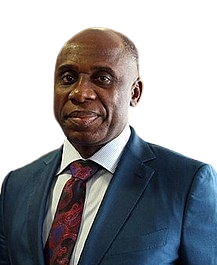
Mr. Rotimi Amaechi, held quite an active front in driving the Buhari legacy from the ministry of
transport where was in charge as minister right from 2015 until last year when he resigned to
contest for presidential primaries.
A key figure in the drive all the way, he put up a larger face in the affairs of government than
the ministerial portfolio he held. By word and by action, Amaechi played a notable role towards
both Buhari’s victory at the polls and the success of his administration.
He held himself out as the ‘poster minister’ in the stage, a defender of the President to the core
and a level headed loyalist that can as well pass as a hero worshiper. It isn’t that simple to trust
a politician when it comes to the reason for such a rare devotion. But the Rivers State born two-
time minister of Transport looks good to make his papers with the President if loyalty is tested.
He seems to have played his game well as a right hand disciple of a man he believes in and
whose legacy he has pursued aggressively and has shown that his goal was for his boss to win.
And so the President himself isn’t going to rightly count the dependable people in his
administration without Amaechi making the top names in the list.
One of the major areas of that the Buhari’s government has made a big difference in his eight-
year rule is railway infrastructure development, which the minister pursued with a passion
while in office in order to fulfill the promises of the President to the people.
The records of his stewardship reflect the changes he brought about in the nation’s transport
system. Under his watch, major progress was made in the development of the rail sub-sector,
improvement of security in Nigerian waterways, seaport reorganisation for efficiency as well as
regulatory improvement in the operations of Nigerian Maritime Administration and Safety
Agency (NIMASA) towards a blue economy project.
The former minister understands the place of railway as a social service that will boost the
economy and did everything he could to ensure he registers Buhari’s name as the man who
made modern railway service happen in Nigeria.
Beyond trying to show his boss in good light, Amaechi was keen to show how his administration
has impacted the lives of Nigerians positively. Railway development was therefore designed to
provide solutions to people and businesses along the linked cities. The targets include creating
employment, empowering manufacturing operations, providing logistics solutions and
attracting new industries around the corridors.
The Abuja-Kaduna rail line and Lagos-Ibadan line that came on stream during his tenure among
other rail projects stand out as some of the biggest infrastructure projects undertaken by the
Buhari’s administration.
Amaechi’s challenge on the job is that the projects are capital intensive and they have to
happen at a period that the required funds are not there. He points to railway development as
a visible destination of a good part of borrowings that have happened under the Buhari’s
administration. He said the Lagos-Ibadan rail project was funded with a loan of $1.4 billion.
Notwithstanding the security challenges encountered on the Abuja-Kaduna rail line, it is a great
milestone attained by the Buhari’s administration in making it possible for people to move
between the two cities by rail. The Lagos-Ibadan rail line was given a standard gauge face lift
and rehabilitation of the narrow gauge lines was also undertaken.
Other major projects of the transport ministry include the Ibadan-Kano railway, the Port
Harcourt to Maiduguri and Lagos to Calabar railway projects, the repositioning of the Maritime
Academy of Nigeria (MAN) Oron in Akwa Ibom State and the establishment of the University of
Transportation in Daura.
A marked improvement in maritime safety and security was also a major achievement of the
former minister of transport. He said his ministry contracted the Israelis at a cost of $495
million to secure the nation’s waters for two years.
His ministry alongside the ministry of defence initiated the blue economy project – the main
objective of which is to secure Nigerian waters up to the Gulf of Guinea. The project has three
categories of platforms fully equipped to tackle maritime security issues from land, air and sea.
The specially trained troops on land are equipped with armoured vehicles among others for
coastal patrol. The air assets include special mission aircraft for surveillance, special mission
helicopters for search and rescue operations and unmanned aerial vehicles. The sea assets
include special mission vessels and fast interceptor boats.
Improved security of the waterways has helped to boost investors' confidence and positioned
Nigeria towards harnessing its ocean resources under the blue economy project. A sharp drop
in the cases of piracy and kidnapping in the Gulf of Guinea attest to the success of security
measures in place in the maritime industry.
The benefits to the nation come by way of removing Nigeria from the red list of global maritime
insecurity and consequent reduction in the cost of transporting goods into the country and the
delay time of cargoes at the seaports.
Amaechi has left the duty post at the ministry of transport with satisfaction that he has made
his mark in contribution to the success of the Buhari’s administration. He attributed his
achievements to the commitment of the President in developing rail and other transport
infrastructures as his legacy to the nation.
Bashir Jamoh: Director General and Chief Executive Officer, Nigerian Maritime Administration and Safety Agency (NIMASA)
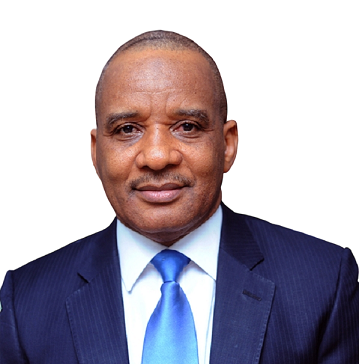
Dr. Bashir Jamoh, director general and chief executive officer, the Nigerian Maritime
Administration and Safety Agency (NIMASA), was called on for duty by the Buhari-led
government in March 2020. The seasoned administrator and maritime expert has however
magnified the three years he has been in charge at the agency to apparently cover gaps and
redeem the years of his absence.
Jamoh has within the short period of his leadership of the maritime agency created so much
awareness by words and actions of the role and capabilities of the agency that he has been
rightly counted among the key legacy drivers of the Buhari’s legacy.
His approach to duty gives an overall impression of a man who knew ahead of time what he
was to do at the duty post and has gone ahead swiftly to get it done once the opportunity
called on him. He took over the leadership at NIMASA at a time that the challenge of insecurity
in the Nigerian waters and in the Gulf of Guinea headed to the climax.
The DG quickly launched a broad solution strategy built on a tripod of maritime security,
maritime safety and shipping development. The security and safety measures formed the
stepping stones to where he has planned to go – which is leading the nation to the biggest
discovery of wealth in the waters.
In two years, he has succeeded in calming the waters – that is putting the security and safety
challenges clearly behind the nation. Piracy cases in Nigerian waters have dropped from 35 in
2020 to 6 in 2021 and one in 2022. Kidnapping and piracy incidents in the Gulf of Guinea have
also experienced a similar sharp drop over the same period under a sustainable architecture for
improved maritime safety and security enforcement that is now in place.
The milestones achieved in security and safety of the waterways have rebuilt confidence within
the maritime trade community, according to Jamoh. The welcome development has ensured
seamless movement of vessels from international waters through the Gulf of Guinea and
Nigeria, he said.
This is to the extent that international maritime bodies such as International Maritime
Organisation and International Maritime Bureau have attested to Nigeria’s success in the fight
against piracy and other maritime crimes.
The gains in maritime security and safety have provided Jamoh the launching pad into the
deeper waters of the economics of maritime domain awareness with which he is ushering the
nation into the vast blue economy project of his regime.
‘The effort to secure our waters has given Nigerians more leverage to harness the enormous
resources of our maritime environment and aid the drive towards economic diversification”, he
said.
The blue economy project is ranked the first integrated maritime security strategy in West and
Central Africa to which the President committed $195 million, according to the DG. It is
supported by a model law, the first in West Africa – Suppression of Piracy and Other Maritime
Offences Act, which provides legal backing for prosecution of offenders.
The initiatives have enabled rapid response to piracy, kidnapping, oil theft, smuggling,
trafficking of persons and drugs and other crimes within Nigeria’s territorial waters and
Exclusive Economic Zone.
With the blue economy project, Jamoh is singing the same chorus of economic diversification
that constitutes Buhari’s strategy to explore new channels of resource inflow for enhanced
economic development. According to him, “today, the waters provide low hanging fruits to
diversify the economy”.
He is therefore opening up the water economy for people to launch out in a new and virtually
unlimited direction apart from oils and gas to explore what is deep there in the waters. The
move, he said, is inevitable in view of proven limitations of the oil industry in due to growing
global shift towards environmentally sustainable sources of energy.
He is leading the nation to a discovery of new jobs and careers, the emergence and growth of
coastal communities, optimization of transportation of people and goods, reduction of poverty,
renewal and sustenance of the environment – all geared towards maximizing the comparative
ocean advantages of the nation.
The vast water resources of the nation on which the blue economy project is to pivot include
853 kilometres of coastline, 8,573 kilometres of inland waterways and 28 out of the 36 states of
the federation are accessible by water and linked to five neighbouring countries’ 10,000
kilometres of navigable waterways. The nation also has 200nm of Exclusive Economic Zone,
12nm of territorial waters, six seaport complexes, 21 oil terminals and more than 10 jetties.
Besides, it has the consumer power advantage with a population in excess of 200 million.
The NIMASA boss is applying a broad based approach that cuts across states and government
ministries and agencies to extend the opportunities to harness the untapped marine potentials
of the nation to all its citizens. The blue economy drive therefore extends beyond the littoral
states where large bodies of water with jetties exist to create equally abundant opportunities in
areas that are far from the waters.
According to him, it includes development of dry ports such as the facilities in Kaduna and Kano
where cargo can be trans-shipped from seaports to the dry ports. The dry ports, he said, are
equipped to process export trade consignments and move them to the seaports.
In leading the way to opening up the water economy for a wide participation towards achieving
economic diversification, Jamoh has identified the key segments of the blue economy ready for
attracting new investments for exploitation. These include maritime transportation, fisheries
aquaculture, renewable energy and tourism.
Investment opportunities also abound in waste management, port development and logistics,
shipping, dockyards and marine tourism. Others are dredging, offshore oil and gas exploration
and production, renewable energy and maritime fabrication and construction.
He has identified fisheries as one of the key segments of great importance to Nigeria in terms of
meeting the needs of livelihood, employment, food security and generation of foreign
exchange. Other opportunities from the blue economy drive of the agency unveiled include
tourism, cargo operations, stevedoring services, warehousing/bonded term haulage,
shipbuilding and repairs.
Included also are ship/cargo surveying, ship management, tank farm, packaging, logistics and
bunkering services. Others are ship chandelling, short-sea services, ship brokerage and ship
agency, ship financing, personnel training, insurance, legal and IT services.
Is-haq Oloyede: Registrar/CEO, Joint Admissions and Matriculation Board [JAMB]
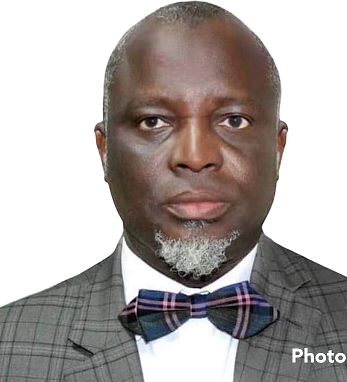
Prof Ishaq Oloyede, registrar/CEO, Joint Admissions and Matriculation Board [JAMB], is one of
the reference marks when it comes to areas where the Buhari’s administration made change
happen in the affairs of the nation. He has been in charge of the examination board since
August 2016 and has demonstrated that corrupt systems and inefficient institutions in the
economy can be turned around to positive and beneficial functions in society.
By making the positive change in the all-important education sector, the JAMB registrar has
made himself counted among the able men of the Buhari’s government, who have registered
visible progress in driving his legacy of bringing down corruption in order to bring back
economic development.
Education represents a major frontier for redirecting the nation’s value system and Oloyede
took up the challenge with a vowed that there wasn’t going to be any compromise whatsoever
as long as he is in charge.
In six years of his stewardship, he has rewritten the story of the examination board from a non-
performing institution that needed to be subsidised to an efficient, surplus revenue generating
entity. Compared to a cumulative return of a piddling N52 million in the previous 40 years of
the existence of the board, the registrar has remitted no less than N50 billion to the federal
government in the last six years.
The remittance represents surpluses that were left after meeting all expenses incurred in
conducting examinations and running the organisation over the years. He was able to make the
shift from deficits to surpluses through new measures introduced to put adequate cost control
measures in place, block the channels of leakages and minimise corruption.
Explaining his strategy for turning the once drainpipe of government revenue into a flow
channel to the national coffers, he noted that “the board also expanded internal capacities for
its operations with direct execution of processes and procedures”. Other initiatives of the board
include the establishment of government-owned CBT centres in all the states of the federation
and minimising fraud in National Youth Service Corps mobilisation.
The JAMB’s story is a typical case of how public funds have disappeared into private pockets
over the years, denying the nation of its development capital. The board, under Oloyede, has
been able to deliver the impressive returns despite that its charges are ranked comparatively
minimal and it has cut its charges twice recently in 2018 and in 2020 by about 30 per cent.
Despite the reduction in charges, the board has continued to expand its facilities and support
institutions with the surplus – which Oloyede attributed to effective management of its
finances.
The channels of leakages have lasted for the 40 years that JAMB had existed from one
government to the other until Buhari deployed the political will to make the change. The
registrar detailed the unprecedented positive return from JAMB to the national coffers to
include over N29 billion directly returned into the consolidated revenue fund, N11 billion
disbursed on capital projects, corporate social responsibility savings of about N6 billion, among
others.
The significant impacts made by the board are the results of strategic and structural
innovations that have changed the narratives such that JAMB now posts humongous returns to
the consolidated revenue fund, according to Oloyede.
More than the positive narration on the side of finances is the huge success that Oloyede has
made of his rescue mission of the lost standard of education in Nigeria. The educationist, who
had for years grieved over the falling standard of education in Nigeria, has seized a once in a
lifetime opportunity of his appointment at JAMB to effect overhauling changes in the system
for good.
The results of the sweeping reforms in the organisation and its procedures are expressed in a
facelift given to the running of the board, restoration of sanity and reclaiming of integrity in the
nation’s educational system.
He has lived up to his promise to see the system of selecting candidates for admission into the
nation’s tertiary institutions of learning regain credibility once again.
JAMP had lost integrity as an examination body to the point that a committee of vice
chancellors resolved in 2007 to conduct a post university matriculation examination as a second
stage screening of applicants for university admissions. This apparent vote of no confidence on
the board lasted until Oloyede set out on a mission to regain a vote of confidence for the
examination board and for the nation.
Rut had crept into the nation’s educational system as the authorities grew passive and
complacent over the years, paving the way for candidates to detract from painstaking academic
hard work to numerous corner cutting devices of passing their exams. Systems and structures in
the tertiary institutions discouraged hard working students but encouraged those taking the
wrong path to pass their exams.
Such was the big mountain ahead of the nation at the time that Oloyode took over the mantle
of leadership at JAMB. He took up the challenge to rescue the educational system through a
hard process of redirecting students and examination candidates from easy ways of passing
exams that had become the norm back to painstaking academic hard work.
Various reforms that hit the institution and its processes with a big bang followed with his
arrival at the duty post and today, they have made the nation’s prime education board one of
the outstanding places where Buhari’s change agenda is manifest. Oloyede made innovations
sweep through the operations of the institution, taking the conduct of examinations to the
realm of technology in order to outmatch technological devices that have aided examination
malpractices.
He crafted an effective therapy to any form of examination malpractices within and outside the
examination centres through the provision of computers and CCTV cameras. That has made it
possible to discover exam cheating with the cameras years after with a possibility of cancelling
a university admission even when a student is about to graduate.
The Oloyede reforms have policed the gateway to tertiary institutions effectively, which have
induced candidates to return to studious academic work. His accomplishments at JAMB affirm
that solutions to challenges facing societies and nations aren’t that farfetched provided that
men and women of ideas get a chance to act.
Mohammed Buba Marwa: Chairman & CEO, National Drug Law Enforcement

Brig-Gen Mohammed Buba Marwa (Rtd), chairman & CEO, National Drug Law Enforcement
Agency (NDLEA), raised new hopes for curbing a ravaging national drug abuse crisis when he
was appointed to lead the battle in January 2021. The hopes drew from his respected character
as a disciplinarian capable of ushering in a new phase of decisive actions and strategy in fighting
the illicit drug crisis in the country.
His appointment was therefore read with appreciation of the Buhari’s administration in taking a
bold step to empower NDLEA to rid Nigeria of the scourge of drug abuse and trafficking of illicit
substances. He came to the scene at a time that scourge of drug abuse was actively driving an
upsurge in various crimes across the country. A structural overhaul of the agency’s approach to
drug law enforcement had become quite imperative.
Marwa could appreciate the enormity of the task before him as well as the need for swift and
effective responses to deal with the situation. He retorted that “having 14.3 million Nigerians
abusing drugs with 10.6 million addicted to cannabis portends grave consequences”.
He quickly embarked on reforms of the organisation, embracing a multi-dimensional and
holistic approach under which new directorates and zonal commands sprang up for an effective
and coordinated confrontation with drug offenders. He considered the reforms quite timely in
view of the dire findings of the National Drug Use and Health Survey of 2018 that a further
delay was an invitation for a national catastrophe.
Within the short period he has pursued the mandate of ensuring a drug-free Nigeria, Marwa has
gone a long way in rewriting the history of Nigeria’s war against illicit drugs and trafficking. He
has re-energized NDLEA to outmatch the activities of drug peddlers with major successes to
show.
The numbers from NDLEA show that as at July 2022 – one and half years of Marwa’ leadership
of the organisation, the agency had arrested over 18,940 suspected drug traffickers, comprising
17,444 males and 1,496 females, including 12 barons. Within the same period, it recorded 2,904
convictions as well as seizures of over 3.6 million kilograms of narcotics and other psychotropic
substances. Also, it has seized up to 286 assets and 600 bank accounts and blocked more than
600 bank accounts of drug offenders and contributed to the Consolidated Account of the
federation through asset forfeiture.
In assessing the performance of NDLEA under his stewardship at the end of 2021, the general
said the effort had led to drug supply reduction, interdiction and reformation of the agency. He
stated that the agency’s achievements in 2021 surpassed the records of any given year in the
past 30 years.
NDLEA’s major operations and spectacular drug seizures since 2021 include the largest single
cocaine seizure in its history – a prodigious amount of cocaine, weighing in the region of 1.8
tons and worth about N195 billion or over $278 million in street value. Four drug barons,
including a Jamaican and the warehouse manager, who are part of an international narcotics
ring under investigation since 2018, were apprehended in various places around Lagos State.
The records also include what Marwa described as the biggest single drug seizure from an
individual in 15 years – 26.84kg of cocaine smuggled from Brazil, 24.05kg of heroin, another
27.95kg of cocaine and another 26.15kg of heroin.
The agency has destroyed 406 hectares of cannabis farms, seized 230 tons of cannabis in Edo
State and over 100 tons of psychotropic substance across the country as well as counseled and
rehabilitated over 11,000 drug users in its facilities across the country. The approach involves
both recovering drug abusers as well as discouraging people never to get involved in drug abuse
in the first place. In pursuit of the latter, Marwa has engaged the Nigerian movie industry in the
drug war in sensitizing viewers on the dangers of drug abuse through didactic stories.
There have been seizures of 451, 807 captagon tablets, weighing 71.119 kg, 1,994,400 capsules
of tramadol, 144, 400 bottles of codeine syrup and 32.9 kg of cocaine all at Apapa seaport,
Lagos. The records include 43.11kg of cocaine and 22,590kg of codeine syrup seized at Tin Can
seaport, 4,996,200 capsules of tramadol, weighing 2,498kg seized at Onne port and another
interception of 100,000 (100ml) bottles of codeine cough syrups weighing 15,325kg seized at
the same port.
Giving account of the upscale battle with drug offenders, Marwa stated that “in December 2021
alone, over 34,000 kilograms of cannabis smuggled from Ghana were intercepted at the Eko
Atlantic City beach while more than 8.3 million capsules and tablets of tramadol were seized in
Lagos a week before Christmas”.
He added that about 1.5 million capsules of the same drug loaded in Onitsha, Anambra State,
heading to Kebbi and Kano States, were intercepted by his men in Edo State.
Part of Marwa’s success strategy is the deployment of a special task force across the country to
track and dismantle drug cartels behind the production and distribution of methamphetamine,
also called mkpuru mmiri, being abused by the youth in parts of the country.
NDLEA’s heightened records of drug seizure arrest and prosecution of drug peddlers have
registered a historic blow to illicit drug traffickers in Nigeria and the international cartels to the
point that Nigeria can no longer serve as their safe trading ground. The successes flash a fierce
warning to drug peddlers that it is no longer business as usual under the flaming sword of
NDLEA.
Every kilogram of drug seized is one kilogram less on the street; every asset seized decapitates
the drug business; every drug trafficker arrested weakens a link in the drug supply chain and
every conviction is a tool lost to drug syndicates. This defines a clear roadmap to the future of
the agency and the nation under Marwa’s leadership.
A destruction of over 560,068kg of assorted illicit drugs in Badagry marked the largest single
quantity of drugs ever destroyed by the agency. Marwa, said the exercise is a strong message to
drug barons and cartels that their criminal trade and investments will end up in ruins in Nigeria
so that they back out and look for legitimate businesses to do.



